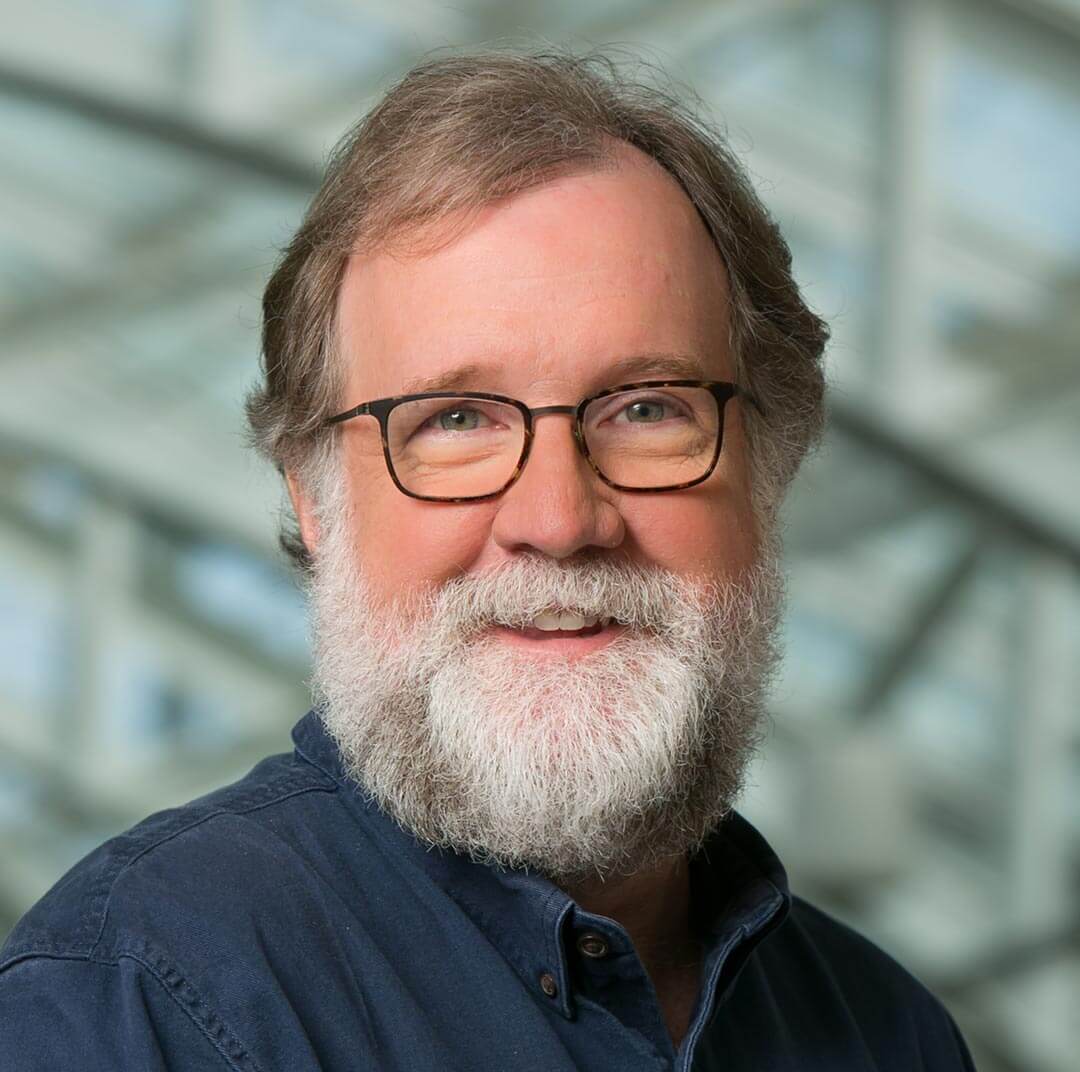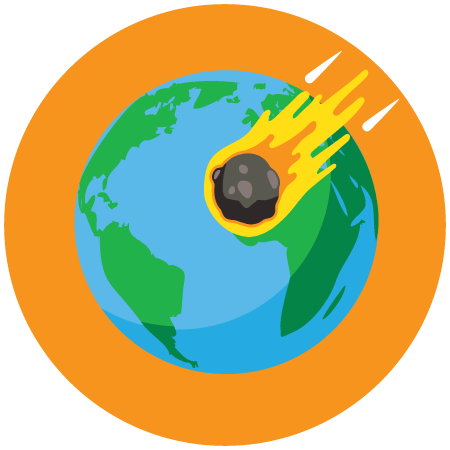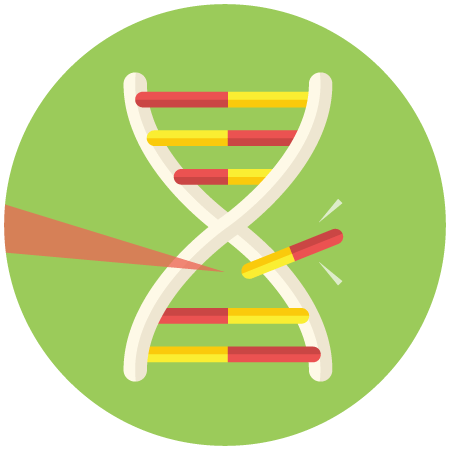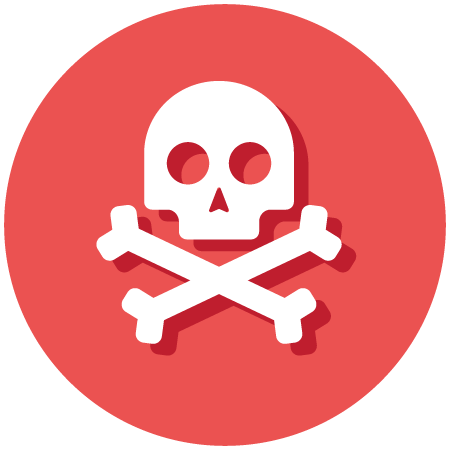- October 21, 2020
- By Chris Carroll
“Everything happens for a reason.”
Although meant to be reassuring, that common phrase makes Sean B. Carroll, author of a book released this month, “A Series of Fortunate Events: Chance and the Making of the Planet, Life, and You,” wince just a little. There’s too much evidence to the contrary.
 At around 200 pages, the book sprints through the role of random chance in the Earth’s history, and particularly human evolution and biology—leading to each of us—a mere 1 in 70 trillion likelihood, based on how many genetically distinct children each of our pairs of parents had the potential to produce. Combine that with billions of years of asteroid strikes, continental drift, volcanos, climate change, predation, starvation, mutation, disease and myriad other circuitous mechanisms, and well…
At around 200 pages, the book sprints through the role of random chance in the Earth’s history, and particularly human evolution and biology—leading to each of us—a mere 1 in 70 trillion likelihood, based on how many genetically distinct children each of our pairs of parents had the potential to produce. Combine that with billions of years of asteroid strikes, continental drift, volcanos, climate change, predation, starvation, mutation, disease and myriad other circuitous mechanisms, and well…
“It’s really sort of astonishing we’re sitting here today talking, if you think about everything that led up to it,” he said in an interview with Maryland Today.
Through his research, Carroll, the Balo-Simon Professor of Biology at the University of Maryland and vice president of science education at the Howard Hughes Medical Institute, has had a fundamental impact on our understanding of the mechanisms of evolution. Unsatisfied with remaining sequestered in his lab, he’s also an Emmy-winning film producer and author of numerous science books aimed at lay audiences. Scientists actually help the progress of science when they strive to tell compelling stories about their work, he says—admitting that in his latest book, which Kirkus labeled a “short, sweet and scientifically solid view of life,” he’s taken accessibility to new heights (or lows, depending on what you think of the work of comedians who base much of their humor around apparent randomness, and feature prominently in the book).
In an online discussion last week supported by the National Academy of Sciences (of which Carroll is a member), “Family Guy” creator and science enthusiast Seth McFarlane told the biologist about a series of blunders that led to him missing a flight he’d booked on Sept. 11, 2001. At the last minute, actor Mark Wahlberg canceled his reservation on the same plane, which terrorists flew into the World Trade Center. Years later, the two were united in a pair of R-rated movies about a foul-mouthed teddy bear. Was it random chance—or were they saved for a reason, Carroll asked?
“That requires that God has an investment in the ‘Ted’ franchise, which I think is probably not likely,” McFarlane said.
Here are some other ways Carroll shows the hand of chance in the evolution of our species, as well as in our daily lives:
 Boom for Mammals: An asteroid impact on the Yucatan peninsula some 66 million years ago killed the dinosaurs and probably all large terrestrial creatures on earth, paving the way for the rise of mammals, and eventually, us. But had the asteroid arrived minutes earlier or later and hit somewhere in the ocean, or if it had struck the Earth’s crust in an area not rich in the kind of rock capable of dimming the sun for years and killing much of the plant life on the planet, the world today would not be our world.
Boom for Mammals: An asteroid impact on the Yucatan peninsula some 66 million years ago killed the dinosaurs and probably all large terrestrial creatures on earth, paving the way for the rise of mammals, and eventually, us. But had the asteroid arrived minutes earlier or later and hit somewhere in the ocean, or if it had struck the Earth’s crust in an area not rich in the kind of rock capable of dimming the sun for years and killing much of the plant life on the planet, the world today would not be our world.
 Rise of Humans: Because its rock foundation was a bit thinner and lighter than surrounding plates in the Earth’s crust, the Indian landmass sprinted toward Asia (at 15 centimeters a year faster than other plates), smashing into it 40 to 50 million years ago and raising up the Himalayas and Tibetan plateau, helping open the way for our own ascent. The geological process is believed to have reduced atmospheric carbon, reversing the greenhouse effect and creating an ice age that favored humans, who—with our large brains and adaptable physiology—could create our own miniature habitats through structures or clothing to help survive the cold.
Rise of Humans: Because its rock foundation was a bit thinner and lighter than surrounding plates in the Earth’s crust, the Indian landmass sprinted toward Asia (at 15 centimeters a year faster than other plates), smashing into it 40 to 50 million years ago and raising up the Himalayas and Tibetan plateau, helping open the way for our own ascent. The geological process is believed to have reduced atmospheric carbon, reversing the greenhouse effect and creating an ice age that favored humans, who—with our large brains and adaptable physiology—could create our own miniature habitats through structures or clothing to help survive the cold.
 Darwin’s Accidents: The variations in species that allow natural selection to favor more suitable forms appear to be the result of random chance, as errors, or mutations, alter DNA sequences and create diversity within species. Darwin didn’t have a firm position on where variation came from, but the idea of the supremacy of chance disturbed religious believers looking to integrate a creator into evolution. “We would prefer this world is less random, that there’s more predictability,” Carroll said. “Maybe we would even prefer someone was looking out for us—but the more we learn science, the more we realize it is random.”
Darwin’s Accidents: The variations in species that allow natural selection to favor more suitable forms appear to be the result of random chance, as errors, or mutations, alter DNA sequences and create diversity within species. Darwin didn’t have a firm position on where variation came from, but the idea of the supremacy of chance disturbed religious believers looking to integrate a creator into evolution. “We would prefer this world is less random, that there’s more predictability,” Carroll said. “Maybe we would even prefer someone was looking out for us—but the more we learn science, the more we realize it is random.”
 Unfortunate Events: Diseases like cancer can take the reins partly away from chance. Very roughly speaking, cancer is only two parts random chance, with our behavior constituting a third element affecting if or when we get it, as 40% of us will. Some cancers—particularly those that strike in childhood or otherwise early in life—are the result of purely bad luck, or mutations. Other cancers arise through DNA mutations that we facilitate with activities like unprotected sun exposure or smoking. A third cause is the unavoidable tallying up of genetic mutations over humans’ lengthened average lifespans compared to previous generations. Most adult cancers, Carroll writes, are “the result of a series of unfortunate events—but also the consequence of the good fortune of living longer lives.”
Unfortunate Events: Diseases like cancer can take the reins partly away from chance. Very roughly speaking, cancer is only two parts random chance, with our behavior constituting a third element affecting if or when we get it, as 40% of us will. Some cancers—particularly those that strike in childhood or otherwise early in life—are the result of purely bad luck, or mutations. Other cancers arise through DNA mutations that we facilitate with activities like unprotected sun exposure or smoking. A third cause is the unavoidable tallying up of genetic mutations over humans’ lengthened average lifespans compared to previous generations. Most adult cancers, Carroll writes, are “the result of a series of unfortunate events—but also the consequence of the good fortune of living longer lives.”
The book author and article author are not related, other than by chance.
Topics
Research